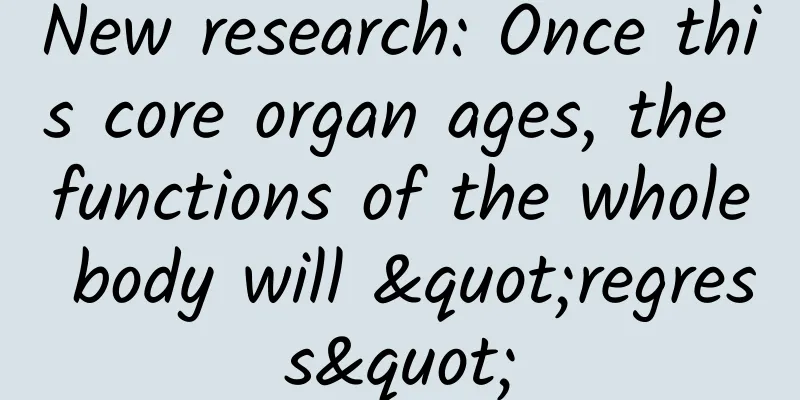A small capsule that can sense your heartbeat at all times!

|
Author: Shi Xiangqi and Li Chuanfu With the rapid development of science and technology, the medical field has also ushered in revolutionary progress. Researcher Li Zhou from the Beijing Institute of Nanoenergy and Nanosystems of the Chinese Academy of Sciences, Associate Professor Liu Zhuo from the School of Medical Science and Engineering of Beihang University, and Director Hua Wei's team from the Arrhythmia Center of Fuwai Hospital published a breakthrough research result in the journal Advanced Materials - zero-bias capsule sensor, which brings new hope for the monitoring and management of chronic heart failure. Overview of zero-bias cardiac monitoring capsule sensor Source: Advanced Materials Heart failure is a global challenge, affecting approximately 45 million people worldwide. It not only brings tremendous physical and psychological pressure to patients, but also imposes a heavy burden on the medical system and the economy. At present, although ultrasound and multi-lead ECG monitoring devices can provide important heart function parameters, they cannot achieve continuous monitoring, and patients need to go to the hospital for regular check-ups, which undoubtedly increases the consumption of medical resources and the inconvenience of patients. To solve this problem, Chinese scientists have developed a zero-bias cardiac monitoring capsule sensor based on the triboelectric effect. This capsule sensor can sense the diastole and contraction of the ventricle, and generate electrical signals through relative friction of the internal structure of the device caused by cardiac activity, directly and in situ reflecting the changes in cardiac mechanical activity, and realizing continuous monitoring and evaluation of cardiac contractility. The core material of the zero-bias capsule sensor uses a nano self-adsorption method to enhance the charge density, significantly improving the mechanical-electrical conversion performance of the triboelectric effect device. The application of this material provides a guarantee for the miniaturization of the device and the coordinated high-performance electrical output. The researchers verified that the sensor met the requirements for in vivo implantation through in vitro biocompatibility experiments and successfully implanted the zero-bias capsule sensor in the right ventricle of a pig model. The experimental results showed that the zero-bias capsule sensor can successfully capture the increase and decrease of cardiac contractility, and even a small displacement can generate sufficient electrical signals to meet the actual needs of in vivo monitoring. The advent of zero-bias capsule sensors can not only monitor changes in cardiac contractility, but also detect abnormal changes in local cardiac contractility caused by arrhythmias, such as ventricular premature beats and ventricular tachycardia. These signals can be wirelessly transmitted to mobile terminals to achieve real-time monitoring and analysis of cardiac status, providing clinicians with a powerful tool to diagnose and intervene in the condition of heart failure patients earlier. As science and technology continue to advance, we can expect that innovative technologies such as zero-bias capsule sensors will bring more hope and a higher quality of life to heart patients. Let us look forward to more breakthroughs in the medical field in the future to protect human health. |
<<: Years of doubt: Are seaweed and laver related?
Recommend
You were an ugly duckling when you were young, and you became a white swan when you grew up. What did you go through in between?
The Spring Festival holiday is over, and handsome...
What should operators do before, during and after an online event?
Today, taking online activities as an example, le...
Do you like this iOS 14 concept design?
Although it is less than half a year away from th...
Analysis of APP promotion and new customer acquisition activities!
The author introduced the specific operations of ...
A big screen makes you look stupid, and a small screen makes you look poor. So what is the appropriate size for a mobile phone screen?
Since the beginning of 2015, rumors about the lau...
Ten techniques to teach you how to create a "10w+" title
This is an era of "information explosion&quo...
Android Permission Management Principles (including 6.0)
Preface Before MarshMallow, permissions were gran...
App fission promotion: N kinds of techniques are fully analyzed!
In an era where traffic is king, social platforms...
After eight years of hard work in the audio-visual industry: IPTV listing was criticized, and OTT has not yet made money
It is said that there was a conference in Chengdu...
Application practice of cross-platform mobile framework UniApp
introduction The CRM transformation project requi...
Carbon fixation is 290 times greater than that of grasslands! Why is this "carbon capture expert" so popular?
In recent years, the concept of "dual carbon...
Uncovering the magic number behind user growth [5]
"5 times" is a magical number. Users wh...
The launch of Shenzhou 18 was a complete success! One picture will help you understand the Shenzhou series of flight missions
At 20:59 on April 25, the Shenzhou 18 spacecraft ...
What skills do event planners need to have to get a high salary?
What is the core competitiveness of event plannin...
Lingdong Zhixing was invited to attend the 2018 AutoNavi Summit and signed a strategic cooperation agreement with AutoNavi on the EasyTravel platform
July 26 news: Pinzhi travel service operator Ling...









